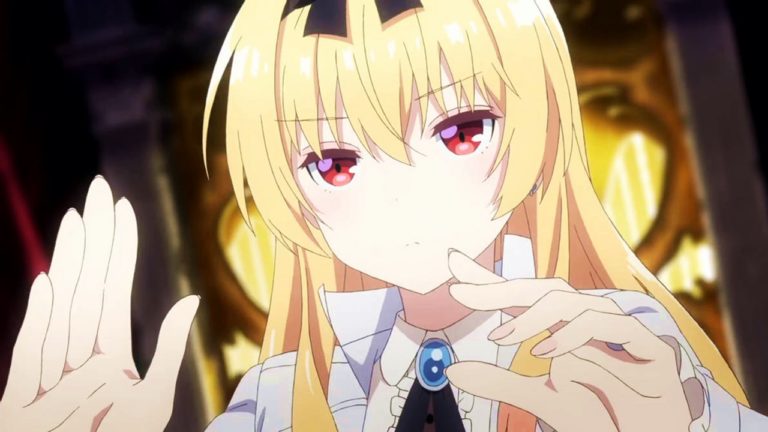
Whether frenemies or strangers that he comes by, he does it by the book to ensure that everyone is treated equally, which in an imperfect world, would sound almost to the point of narcissism. I like references when done right and that the general audience understands why the context is used, but Realist Hero just quotes them like "It's the definition of law and order, written in black and white" to appease the people whom didn't understand one fair bit, yet continue to trust that the same people will understand the motives of the one in charge and trust that whatever the hero's doing, he's doing it for the best intentions of the kingdom. It's like cooking something but adding sugar instead of salt (or MSG rather) to make the taste balance topsy turvy, and yet still, manage to fail in every regard. It's no surprise that deep within the reaches of Realist Hero, nothing stands but generic Isekai and with a harem to match, because what else could you try to match sophisticated intelligence like Machiavelli's to make it "realistic". “Absurdity is the ecstasy of intellectualism.” ― Criss Jami, author of Salomé: In Every Inch In Every Mile
#The elfrieden kingdom tales series
FeynmanĪnd this quote might just be the best answer to sum this series as a whole, short and sweet: If it doesn't agree with experiment, it's wrong.” ― Richard P. “It doesn't matter how beautiful your theory is, it doesn't matter how smart you are. “Whenever a theory appears to you as the only possible one, take this as a sign that you have neither understood the theory nor the problem which it was intended to solve.” ― Karl Popper “I imagine that the intelligent people are the ones so intelligent that they don't even need or want to look 'intelligent' anymore.” ― Criss Jami, author of Killosophy I do love shows covering politics and the like (a la Log Horizon) because it gives me reason to jog my brain, but after bearing through yet another season of this, I have but only one answer to it, and that's by some quotes:

And since this is the continuation of that series from last Summer, to say that Realist Hero wasn't for me would be a sore understatement. And novelist Dojyomaru took and transformed that ideal into an Isekai where a modern person of intelligence and conceit was summoned to a fantasy world where the kingdom he was summoned was facing political and social pressure, and needed to be reformed before it could be lost to potential rivals typical of the kingdom wars and takeover and what-have-yous.

The Prince's aim was to teach that the "effectual" truth was to be taken as more important than any abstract ideal. it was written in Italian Vernacular, giving rise to the popularity of literature in the Renaissance Period. But as is with this very controversial work that's debated for centuries after his death, there was one consensus that was generally agreed on, and it's innovation, partly because like many other prose works of the time, The father of modern political philosophy and science, 15th Century-borne Niccolò Machiavelli, is a very influential figure for his unscrupulous acts that are proclaimed in his most famous (or infamous rather) work on The Prince (Il Principe), being heralded as the instruction guide for new princes and royals, accepting that the aims, such as glory and survival, can justify the use of immoral means to achieve those ends.


 0 kommentar(er)
0 kommentar(er)
